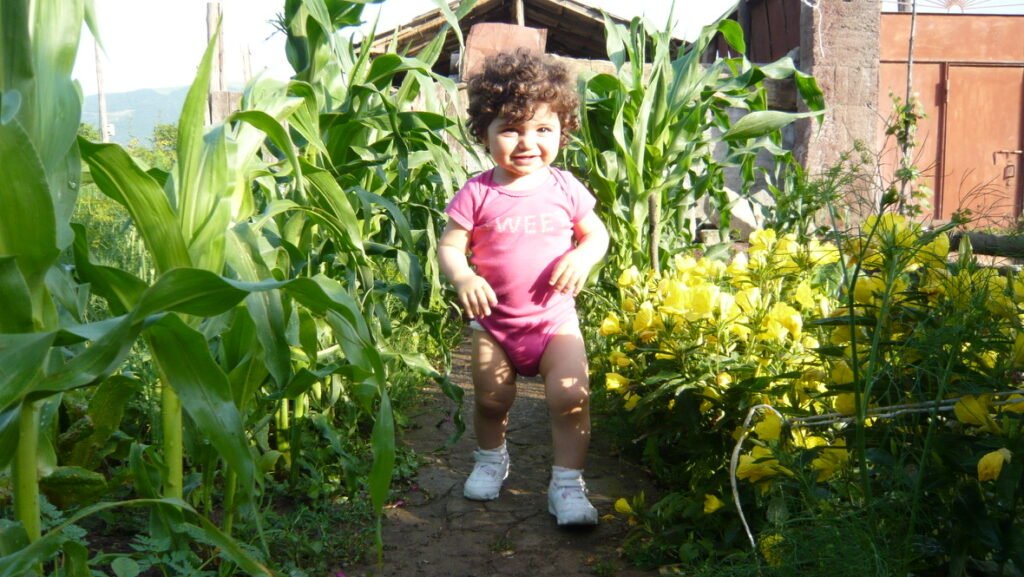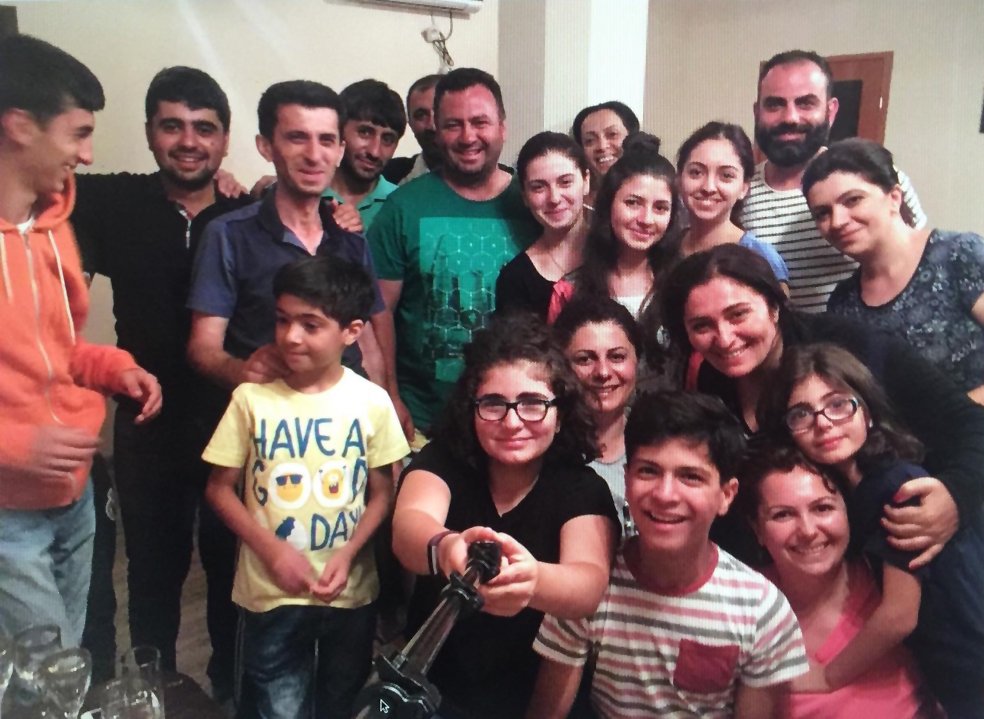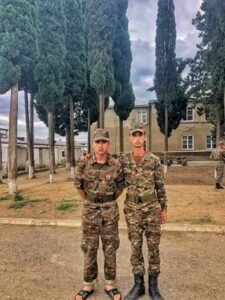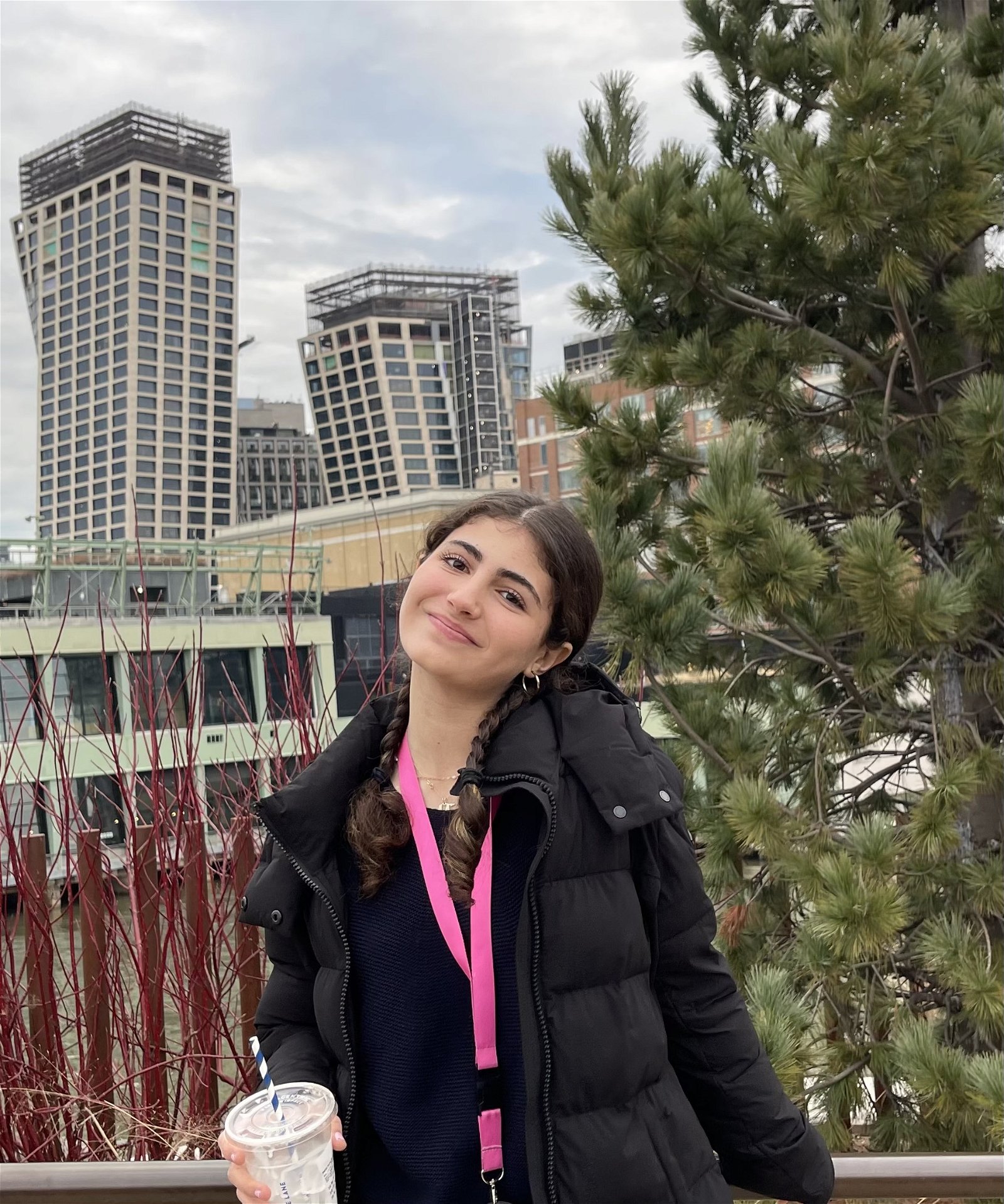I grew up wanting two birthday parties—not for twice the amount of presents and cake, but because the idea of having my Armenian and non-Armenian communities under the same roof made me squirm. I felt like I had to be two different people at the same time, but I couldn’t fit neatly into either role. I would either try to be the most knowledgeable person about all things Armenian or pose as the exact opposite. In school, my peers didn’t understand my home life, where uncles gave lengthy toasts over dinner, aunts raised their voices three octaves when they pinched my cheeks and scolded me when I sat on the bed.

I come from late night family barbecues on a school night. Twelve-hour flights to Yerevan connecting through Moscow. Throwing up on the six-hour drive from Yerevan to Tatev. Taking my first steps in my Tatik’s garden. I did a good job hiding these roots when I was in the third grade, but whenever a substitute teacher mispronounced my name during attendance, people shortened my name to “Mar,” or I chose to speak English with my grandmother instead of Armenian, I felt embarrassed, like I was giving in to assimilation.

As I got older, I understood that being Armenian is the biggest part of my identity, and I shouldn’t hide it. Soon, I was recognized for being patriotic. I corrected people when they said my name wrong and educated my peers about the Armenian Genocide.

As a child, I didn’t realize how difficult it must have been for my mom, who moved to New York on her own without speaking a word of English. While her whole family was together in Armenia, she joined them over Skype during one of the most difficult periods. My cousins were on the front lines for two years, and it horrified us knowing that they could have been one of the thousands of soldiers who died during the 2020 Artsakh War.
I used to wish my mom and I could be with our whole family, embracing our loud company after all of the loss. I still wish that sometimes, but I’ve also realized how privileged I am not to have experienced what my family went through. Being in Armenia wouldn’t necessarily help my home for the better. Living in America has opened up so many opportunities to spread awareness and educate people. I don’t have to feel helpless anymore.
I know that being Armenian doesn’t depend on where we live as diasporan Armenians, but on keeping our culture alive and never giving up fighting for our homeland.
Hiding my identity as an Armenian girl became the very reason I joined every organization I possibly could and gave them every idea I thought of. I have organized protests and fundraisers, delivered speeches, written articles, and most importantly, I never lost hope. I never stopped speaking our language. I never stopped being curious, and I never stopped wanting to learn more. Here I am now, growing as an Armenian and as a person. I am still in pain and distraught over everything that has been happening for the past 108 years, but I know that being Armenian doesn’t depend on where we live as diasporan Armenians, but on keeping our culture alive and never giving up fighting for our homeland. These are the things that make Armenians loud, welcoming and kind. I want Armenians who believe that they have to change the way they say their names to learn that their real name and their real self is the one they don’t have to be ashamed of.



Maral I am so proud of you.
We so proud of you Maral jan . Keep up the good work 👏🏻👍🏻
Great job telling about your identity and becoming who you are! Proud of you ❤️
So proud of you quirk’s <3